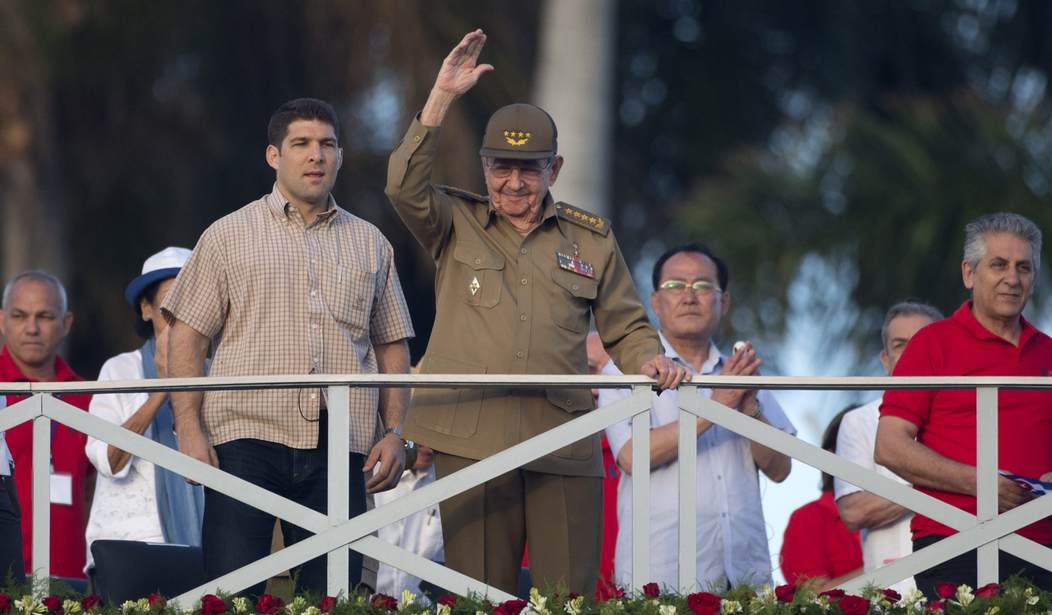WASHINGTON – There is no doubt that the Cuban government conducted or was aware of the 2017 sonic attacks on U.S. diplomats in Havana, Sen. Marco Rubio (R-Fla.) said today, a few days after Sen. Jeff Flake (R-Ariz.) defended the regime against blame.
At least 24 American diplomats or their family members were injured in separate incidents earlier this year, and investigators have pointed to the use of sophisticated acoustic-attack gear. Injuries and symptoms included concussions, hearing loss and dizziness. Officials testified before Congress that some Americans were treated for traumatic brain injuries and concussions.
Rubio, while chairing a Senate Foreign Relations subcommittee hearing, described Cuba as a “police state,” particularly Havana. He argued that the Cuban government is watching American diplomats 24/7 in the most “heavily monitored city in the Western Hemisphere.”
“The idea that someone could somehow conduct an attack so sophisticated that we don’t even know what it is without the Cuban government at least knowing about it to one U.S. government employee, not to mention 24 over a 12-month period, is … ridiculous,” Rubio said.
Flake, who also sits on the committee, declared last week that there is no evidence that American diplomats were the victims of attack in Havana. The Arizona senator recently met with Cuba’s Foreign Minister Bruno Rodriguez and members of the regime’s Interior Ministry.
“The Cubans bristle at the word ‘attack.’ I think they are justified at doing so,” Flake told CNN on Friday. “The FBI has said there is no evidence of an attack. We shouldn’t be using that word.”
President Trump and Secretary of State Rex Tillerson have said that Cuba is responsible for the sonic attacks. Trump in October expelled 15 Cuban diplomats from the United States. State Department Acting Assistant Secretary Francisco Palmieri said today that since the expulsion, the Cuban government “has engaged in a pattern of trying to discredit the theories related to these attacks. I do not think that is a healthy posture for it to take.”
According to State Department Diplomatic Security Assistant Director Todd Brown, attacks were carried out between December 2016 and April 2017 on several residences, including two hotels. No official facilities were targeted, he said. The U.S. government has yet to identify an exact mechanism for the attacks.
“Throughout this process, we have not been able to identify who the perpetrator of such an attack was, or what the means of such an attack was,” Palmieri said.
Brown said the State Department’s conclusion has been that these were hostile acts toward American diplomats, “a form of harassment attributable to the government.” The State Department has since set in motion an accountability review board to assess the potential attacks.
Rubio criticized the department for its lack of urgency on the review. Federal law requires that in the event of “serious” injuries involving American officials, a review board needs to be set up within 120 days. While the injuries came to light in May, Tillerson just last month authorized the review.
“It was only until late August when there was another round of attacks that it became apparent that we should begin the process of looking at an accountability review board,” Palmieri said.
Rubio asked the officials if the U.S. can guarantee diplomats’ safety from future sonic threats.
“Senator, I don’t think we can say categorically that we can guarantee that they would be safe from this,” Brown said. “Certainly, not knowing what’s causing it or who’s behind it or how it’s being done gives us very little in terms of mitigation and what we have done is sort of addressed being sure that our community in Havana is well aware of what has happened to provide advice on how to respond to that, to have teams in place that can then respond.”
State Department Bureau of Medical Services Medical Director Charles Rosenfarb said the agency only has reactive measures for its diplomats, not any protective measures. He said if a diplomat hears or feels a sensation, the recommendation is to move away as soon as possible.
Sen. Bob Menendez (D-N.J.) compared that advice to telling children to get under their desk during an air raid drill for a nuclear attack.
“Ridiculous,” he said. “Moving away from a sound you’re hearing. It’s pretty amazing to me.”









Join the conversation as a VIP Member